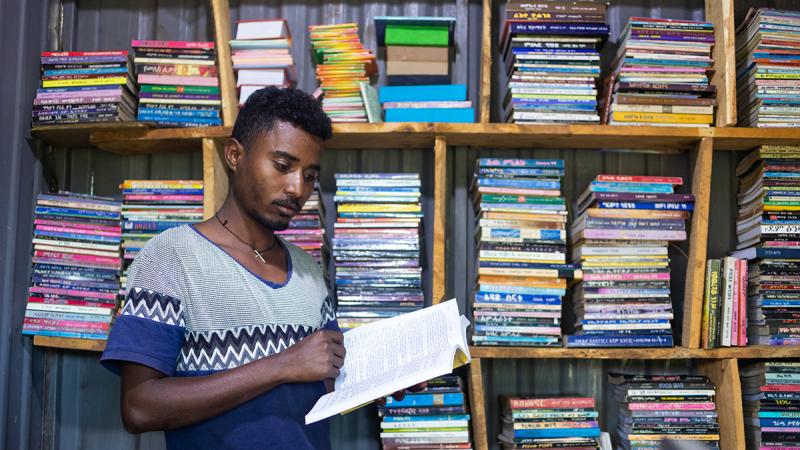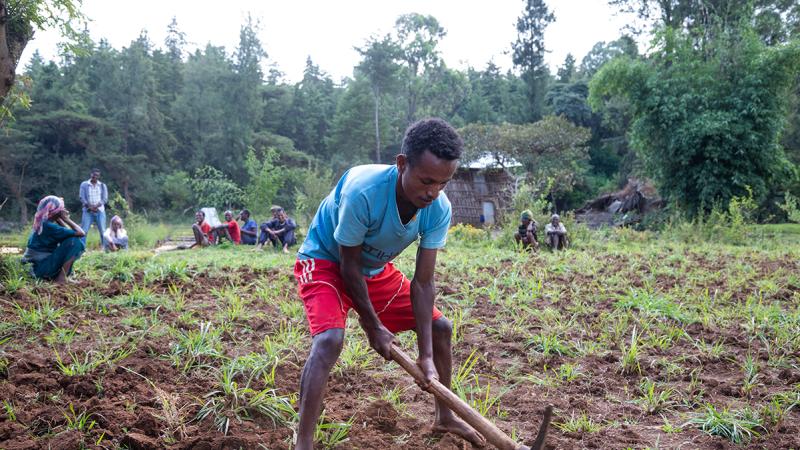Breadcrumb
Young Lives is investigating the changing nature of the lives of children, adolescents and young adults over 22 years.
We are following two groups of children: 2,000 children who were born in 2001-02 and 1,000 children who were born in 1994-95. These groups provide insights into every phase from early childhood to early adulthood. The younger children are being tracked from infancy to their early twenties, and the older children through to their late twenties, when many have become parents themselves.
When this is matched with information gathered about their parents, we are able to reveal much about the intergenerational transfer of poverty, how families on the margins move in and out of poverty, and the policies that can make a concrete difference in their lives.
Our research is designed to cover three broad areas:
- What are the factors that live in children as they grow up to either increase or reduce poverty and its effects?
- What effects does poverty have on the lives and experiences of children, and adolescents from early childhood into adulthood?
- To what extent are current international and national policies effective in reducing childhood poverty in the study countries?
Study sites in Ethiopia
Our research sample households are found in both rural (60 per cent) and urban (40 per cent) areas located in 20 sentinel sites in the six regions of Ethiopia (Amhara, Oromia, SNNPR, Sidama and Tigray, plus the capital city Addis Ababa).
The Young Lives team used multi-stage, purposive and random sampling to select the two cohorts of children. This methodology randomised households within a study site while the sites themselves were chosen on the basis of predetermined criteria. To ensure the sustainability of the study, and for re-surveying purposes, a number of well-defined sites were chosen. The sites were selected with a pro-poor bias to ensure a balanced representation of Ethiopian regional diversity as well as rural/urban differences.
Our Combined Methods
We carry out multidisciplinary research using a mix of qualitative and quantitative methods, including a detailed survey of all the children, group work and participatory activities with a smaller group of some children, and policy analysis.
Household and child survey
A detailed, comprehensive survey of all the Young Lives children and their primary caregivers is carried out every three years with the seventh round planned for 2023. The surveys use a questionnaire for each child and his or her primary caregiver. We also talk to community leaders to understand more about local resources and services and changes happening in the local area. The questions cover material well-being, physical health, education and cognitive development, perceptions of wealth and general well-being, psychosocial health, time use and activities, risk and vulnerability, social and political capital, labour market transitions and the effects of shocks, notably Covid, Climate Change and Conflict
Longitudinal qualitative research
An in-depth look at particular aspects of children’s lives with a smaller sample of 100 children and their caregivers in five communities from each region with five waves carried out until 2019. The sample also reflects an equal number of older and younger age groups (cohorts) and boys and girls. This involves group-based activities, individual interviews, and observational work exploring their local environment.
We talk to the important adults in each child’s life, including their main carer, teachers and local community figures, healthcare providers, kebele administration, NGO representatives and local association members both individually and in groups. The major focus of our qualitative research has been on children’s age-related expectations and risks, children’s perception of poverty, development programmes’ impact on children’s lives, community and educational timelines, key transitions and time use (work, education, etc.), well-being (psychosocial and physical), intergenerational comparisons, and access to and quality of education, play and health services and facilities. See more on our qualitative longitudinal research on our international website.
School survey
A school survey was introduced into Young Lives in 2010 in order to capture detailed information about children’s experiences of schooling. Two further rounds, in 2013 (for Grades 4 and 5), and 2016-17 (Grades 7 and 8) have taken place. They address two main research questions:
- How do the relationships between poverty and child development manifest themselves and impact children's educational experiences and outcomes?
- To what extent does children’s experience of school reinforce or compensate for disadvantage in terms of child development and poverty?
The survey allows us to link longitudinal information from the household survey with data on the schools attended by the Young Lives children. This provides policy-relevant information on the relationship between child development (and its determinants) and children’s experience of school, including access, quality and progression.
Download Young Lives Survey Design and Sampling in Ethiopia Factsheet (2014)
You can also read more about our research methods on our international website.



